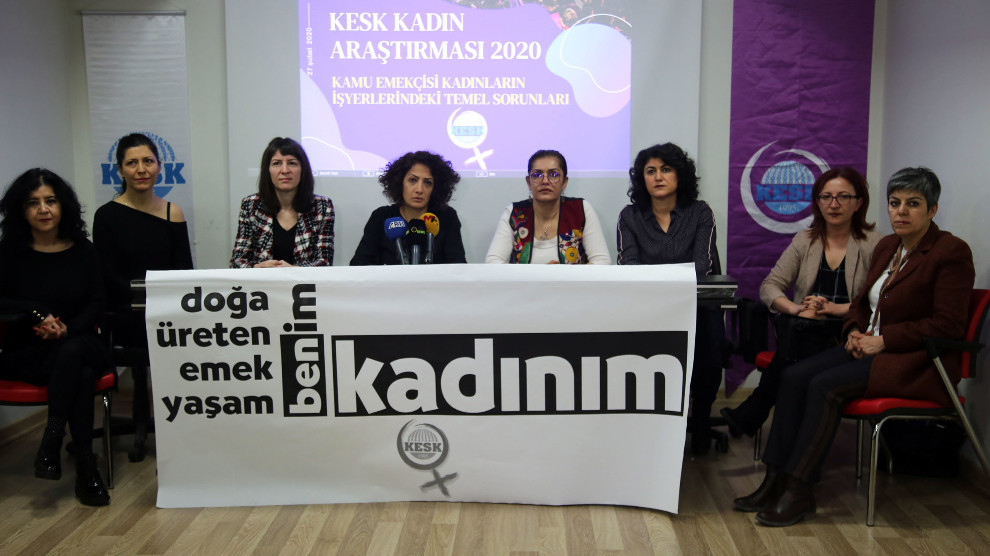KESK: Women working in state agencies face gender discrimination
Among divorced women, the proportion of those who think they are being discriminated against is significantly higher than among married or single women.
Among divorced women, the proportion of those who think they are being discriminated against is significantly higher than among married or single women.

The Confederation of Public Workers' Unions (KESK) has released a report about women working for state agencies facing harassment to mark 8 March International Workers Women's Day.
According to the report amost half of women working for state agencies think they are subjected to discrimination at work because of being women.
KESK carried out 1,792 interviews with women from 62 provinces and 84 different working groups. The interviews were conducted between 25 December 2019 and 15 February 2020.
As the level of education increases, awareness about discrimination also increases.
Among divorced women, the proportion of those who think they are being discriminated against is significantly higher than among married or single women.
The same is true for women with less job security: they feel they are being discriminated for being women.
As for violence, 92 percent of the participants say they were subjected to unjust treatment (violence) at least once. The biggest problem is mobbing and the prevention of exercising legal rights.
A total of 59 percent of women say they were subjected to mobbing in their workplace, while 39 percent say they were prevented from exercising legal rights such as the leave right or organization, 39 percent say they were discriminated against in terms of carrier and promotion and 28 percent say they were verbally harassed.
5 percent of the women said they were physically harassed and 3 percent said they were sexually harassed.
89 percent of the women interviewed complained about the lack of a proper daycare center in their workplace.
94 percent asked fro daycare centers to open.
As for paid maternity leave, currently this is 16 weeks in Turkey: 8 weeks before birth and 8 after. However 51 percent of the women interviewed said paid maternity leave should be granted for 32 to 44 weeks, 28 percent say it should be for 16 to 31 weeks, 21 percent say it should be 45 weeks or more.
One-third of the participants say they face problems with breastfeeding permission.
86 percent of the participants think March 8 International Women's Day should be declared a holiday in Turkey.
As to the composition of the women interviewed by KESK, 82 percent were permanent public employees, 9 percent were contracted employees, 16 percent had a graduate degree, 69 percent had an undergraduate degree.
61 percent of the women were married, 36 percent were single and 2 percent were divorced.
94 percent were in the age range 25 to 55.
41 percent worked in "education services," 32 percent in "health and social services," 17 percent were doing "office work," 7 percent technical jobs, such as architecture and engineering.
Half of the women interviewed were from big cities, Istanbul, Ankara, Izmir.